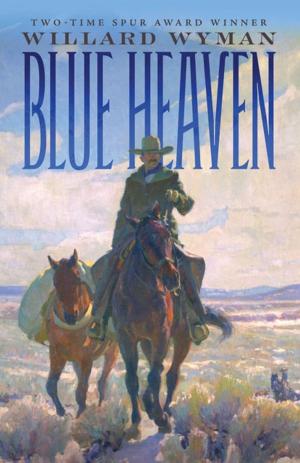Wil Usdi
Thoughts from the Asylum, a Cherokee Novella
Fiction & Literature, Native American & Aboriginal, Historical| Author: | Robert J. Conley | ISBN: | 9780806151441 |
| Publisher: | University of Oklahoma Press | Publication: | February 16, 2015 |
| Imprint: | University of Oklahoma Press | Language: | English |
| Author: | Robert J. Conley |
| ISBN: | 9780806151441 |
| Publisher: | University of Oklahoma Press |
| Publication: | February 16, 2015 |
| Imprint: | University of Oklahoma Press |
| Language: | English |
Adopted into the Cherokee tribe as a teenager, William Holland Thomas (1805–1893), known to the Cherokees as Wil Usdi (Little Will), went on to have a distinguished career as lawyer, politician, and soldier. He spent the last decades of his life in a mental hospital, where the pioneering ethnographer James Mooney interviewed him extensively about Cherokee lifeways. The true story of Wil Usdi’s life forms the basis for this historical novella, the final published work of fiction by the late award-winning Cherokee author Robert J. Conley.
Conley tells Wil’s story through the recollection of the old man’s memories. Wil learns the Cherokee language while working at a trading post. The chief Yonaguska adopts the fatherless Wil, seeing to it that the boy dresses like a Cherokee and, for all practical purposes, becomes one. Later, representing the Eastern Band of the Cherokees in their negotiations with the federal government, Wil helps them remain in their ancestral lands in North Carolina when most other Cherokees are sent off on the Trail of Tears to the Indian Territory. Thus, Wil becomes popularly known as the white chief of the tribe. He continues making money as a merchant and in 1848 is elected to the North Carolina state senate, where he assists in the creation of a railroad system to serve the copper mines in neighboring Tennessee. During the Civil War, he leads a Cherokee battalion in the Confederate Army and tries to persuade his cousin Jefferson Davis to expand the battalion of fierce warriors into a regiment. His achievements make his admission into an insane asylum all the more tragic.
The Wil Usdi of Conley’s story is in increasingly bad health, mistreated in a mental institution that to twenty-first-century readers is little more than a jail. He dreams of women and warfare and boyhood games of stickball. Yet even in his demented state, Wil is proud of his accomplishments and never loses his conviction that Indians are “more human than whites.” Weaving together the disconnected stories of Wil Usdi’s life, Conley’s blend of thorough research and imaginative prose gives readers a deep sense of post-removal Cherokee history.
Adopted into the Cherokee tribe as a teenager, William Holland Thomas (1805–1893), known to the Cherokees as Wil Usdi (Little Will), went on to have a distinguished career as lawyer, politician, and soldier. He spent the last decades of his life in a mental hospital, where the pioneering ethnographer James Mooney interviewed him extensively about Cherokee lifeways. The true story of Wil Usdi’s life forms the basis for this historical novella, the final published work of fiction by the late award-winning Cherokee author Robert J. Conley.
Conley tells Wil’s story through the recollection of the old man’s memories. Wil learns the Cherokee language while working at a trading post. The chief Yonaguska adopts the fatherless Wil, seeing to it that the boy dresses like a Cherokee and, for all practical purposes, becomes one. Later, representing the Eastern Band of the Cherokees in their negotiations with the federal government, Wil helps them remain in their ancestral lands in North Carolina when most other Cherokees are sent off on the Trail of Tears to the Indian Territory. Thus, Wil becomes popularly known as the white chief of the tribe. He continues making money as a merchant and in 1848 is elected to the North Carolina state senate, where he assists in the creation of a railroad system to serve the copper mines in neighboring Tennessee. During the Civil War, he leads a Cherokee battalion in the Confederate Army and tries to persuade his cousin Jefferson Davis to expand the battalion of fierce warriors into a regiment. His achievements make his admission into an insane asylum all the more tragic.
The Wil Usdi of Conley’s story is in increasingly bad health, mistreated in a mental institution that to twenty-first-century readers is little more than a jail. He dreams of women and warfare and boyhood games of stickball. Yet even in his demented state, Wil is proud of his accomplishments and never loses his conviction that Indians are “more human than whites.” Weaving together the disconnected stories of Wil Usdi’s life, Conley’s blend of thorough research and imaginative prose gives readers a deep sense of post-removal Cherokee history.















